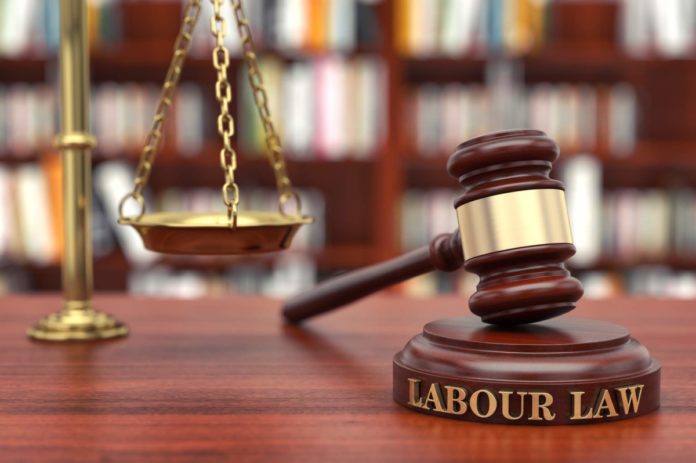BusinessLive Middle East recently held a webinar on Sustaining Business Continuity and Evolution During and Post COVID-19 in which we spoke to industry experts from GCC on a variety of topics ranging from the Central Bank of UAE’s relief packages to bankruptcy, contingency planning and the recent resolutions added to the UAE Labour Law.
In the second concluding part of the series, we talk to Natalie Jones, an experienced senior associate who joined Al Tamimi & Company’s employment practice in 2012. She advises clients throughout UAE (onshore and in the free zones), concerning all aspects of UAE employment law compliance from the on-boarding process, day to day management of employees, advising on termination and post-termination issues.
Who does the MOHRE new Resolution (279 of 2020) apply to?
“The resolution, strictly speaking, applies to all entities under the remit of the ministry. These are basically the entities, which obtain work permits or labour cards from the ministry when they’re onboarding employees. The remit of the resolution would not extend to the free zones. Having said that some of the free zones are now implementing the resolution. And in addition to that, we expect that the courts and the authorities more broadly expect most entities in the UAE to act within the spirit of the resolution and therefore comply with the terms of the resolution.”
What are the permitted measures to ease the financial burden of employment costs on employers?
“The resolution provides a number of actions, which can be taken by employers. I think it’s important to note at the outset that the Labour Law still governs the employment relationship in the UAE outside of DIFC and ADGM.
“What’s useful about the resolution is that it reflects a number of provisions that haven’t been set out in law to date. The resolution provides for employers to place employees on remote working so they can work from home. It also provides for asking employees going on paid leave. But that is not new, because the Labour Law does allow employers to place employees on paid leave at its discretion.
“The new provisions that have been provided include unpaid leave and deductions in salary, both for a temporary period and for a longer period, although the relevant periods are not set out in the resolution.
“The resolution also provides, in some terms, for a provision of redundancy. It doesn’t say specifically about redundancy, but it does contain guidance for employers in circumstances where the employer has a surplus of employees as a result of the current situation and it provides steps that must be taken by those employers in that situation.
“It is important to note that when we’re talking about unpaid leave and reductions in salary, whether temporarily or long term, the employer can’t act unilaterally. So, the resolution does not allow employers to impose a paid leave or reductions in salary without employee consent.
“The ministry has provided a document that must be entered into between the parties that will act as an addendum to the employment contract filed with the ministry. It is a simple document and basically allows the parties to tick what measures they’re putting in place and set out the timeframe within which the said measures will be in place. It also allows the signatures by both parties so that there isn’t a dispute in the future as to whether the parties agreed with the terms or not.
“Strictly speaking, the measures set out in the resolution should be followed in the order in which they are set out. For example, remote working, unpaid leave, salary reductions, and then redundancy. There are, however, no penalties set out in the resolution and therefore we obviously don’t know at this point in time what the repercussions would be if the steps were not ticked.
“From experience with the courts, it would be a case of how sympathetic the courts would be if there was a dispute. For example: If an employer can show that it has followed the resolution exactly and took all steps to maintain employment and to consult with employees and followed everything in order, then I think the courts would likely be more sympathetic than if an employee could demonstrate that an employer had failed to follow those steps in order. It is a question of how the courts will deal with a case in the event of a dispute rather than there being any specific measures at this point to make sure the steps are followed.”
How long will employers and employees be subject to the Resolution?
“The resolution does not say anything about the timeline. It has an implementation date of March 26, but it doesn’t have an end date. And what’s interesting is often when resolutions are implemented by the ministry or by other authorities, there is usually an implementation date and nothing about a withdrawal.
“This resolution provides in the context of making employees effectively redundant and the measures will be in place until the earlier of the employee finding a new role or the employee being able to leave the country. For example, when travel restrictions are lifted or when the resolution is withdrawn, which I think indicative of the fact that at some point the resolution will be withdrawn, but the authorities obviously don’t know the timing of that yet.
“I think the resolution will be in place for probably months rather than weeks until we are seeing a real turnaround in terms of what’s happening.”
What are employers’ rights in respect of COVID-19 and reducing entitlements?
“As I mentioned earlier, the Labour Law is still in place at this point and it doesn’t say anything at all about employers being able to reduce entitlements for employees. So, we need to look at the resolution in that regard. Employers can, pursuant to the resolution, reduce salaries temporarily or long-term and can put employees on unpaid leave. In all cases, though we need to employee consent. As an employer, you cannot force employees to consent to unpaid leave or reductions in salary. This is where documenting conversations comes in. I think it’s important even before we’re documenting anything just to make sure conversations are happening. So, the employer must ensure clear, transparent communication with employees.
“Most employees obviously are aware of what’s going on. In UAE they can see, for example, that Dubai is on lockdown and there are restrictions in terms of employees that can go into the work premises. In Abu Dhabi, only 30 per cent of the workforce can attend the office. Employees are also aware that there will be an impact on a lot of companies in terms of cash flow because clearly a lot of companies are not making money. So, I think employees know what’s going on, but what they need is open communication from the company as to what exactly is happening, particularly in relation to their employment and what measures are being put in place by the company to try and limit any impact on employees and on the business as a whole.”
What are employers’ obligations where offices/work premises are partially or fully closed?
There’s nothing specifically relates to employer obligations other than the terms of Labour law, which continue to apply. The terms of the employee’s employment contract continue to apply other than where there is written evidence that new terms have been introduced and accepted by both parties. So, if there is no agreement to the contrary, the employer would still have to pay the employee their salary and any benefits entitlements under the Labour Law will continue to accrue.
“It is important that employers take a proactive approach in terms of what they are doing, particularly for employing entities that are closed and not doing any business, which results in them not being able to pay salaries. If they just stopped paying salaries without documenting it and without getting employee consent, they are going to struggle in the event that employees file a claim. So, as it stands right now, the Labour Law is in place, the contract is in place, obligations continue unless there is an agreement to the contrary.”






